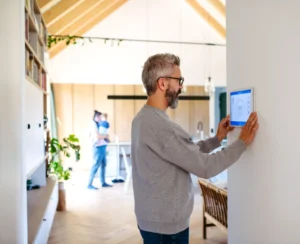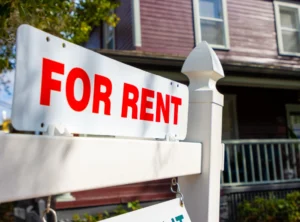Home·Property Management·Can You Do a 1031 Exchange With Foreign Property?
Tax implications vary depending on the countries involved in the exchange

Can You Do a 1031 Exchange With Foreign Property?
Are you wondering if you can use a 1031 exchange with foreign property? While a 1031 exchange is a powerful tool for deferring capital gains taxes, the rules around foreign property are a bit different. Understanding the IRS regulations is key to making this strategy work for you.
In this article, we’ll break down what’s possible, what’s not, and the best practices for navigating international property exchanges.
Whether you’re a seasoned investor or new to cross-border real estate, you’ll gain valuable insights on how to optimize your investment strategy. Let’s explore the limits and opportunities of 1031 exchanges with foreign property.
Key Takeaways
-
1031 exchanges can include foreign properties if specific IRS rules are followed
-
Tax implications vary depending on the countries involved in the exchange
-
Working with experienced professionals is crucial for successful international property exchanges
Understanding the 1031 Exchange
A 1031 exchange is a powerful tool for real estate investors to defer capital gains taxes. It allows you to swap one investment property for another while postponing tax payments. Let’s explore the basics and the key role of the qualified intermediary.
Basics of a 1031 Exchange
A 1031 exchange, named after Section 1031 of the Internal Revenue Code, lets you sell a property and reinvest the proceeds in a new property. The main benefit? You can defer paying capital gains tax.
To qualify, both properties must be “like-kind.” This term is broader than you might think. Most real estate is considered like-kind to other real estate. A single-family rental could be swapped for a multifamily building or even raw land.
There are strict timelines to follow:
-
45 days to identify potential replacement properties
-
180 days to complete the purchase of the new property
Remember, you must reinvest all the proceeds to fully defer taxes. Any cash you pocket will be taxable.
Role of the Qualified Intermediary
A qualified intermediary (QI) is crucial to your 1031 exchange. They act as a neutral third party, holding the funds from your sale and using them to buy the replacement property.
Why do you need a QI? The IRS doesn’t allow you to touch the money during the exchange. If you do, it could disqualify the entire transaction.
Your QI will:
-
Prepare necessary documents
-
Hold sale proceeds
-
Purchase the replacement property on your behalf
Choose your QI wisely. They should be experienced in 1031 exchanges and have a solid reputation. Your real estate success may depend on their expertise.
International Aspects of 1031 Exchanges
1031 exchanges involving foreign properties have specific rules. The IRS treats these transactions differently than domestic exchanges. Let’s explore how U.S. taxpayers can navigate cross-border real estate investments for tax deferral.
Exchange of Foreign Property for U.S. Real Estate
Can you swap your villa in Spain for a condo in Miami? Not quite. The IRS doesn’t allow 1031 exchanges from foreign to U.S. properties. If you sell property abroad, you’ll likely owe U.S. capital gains tax.
But don’t fret! There’s a silver lining. If you own multiple foreign properties, you can exchange them among themselves. For example, you could trade your Paris apartment for a London townhouse.
Remember, foreign tax laws still apply. You might dodge U.S. taxes, but local regulations could take a bite out of your profits.
Exchange of U.S. Real Estate for Foreign Property
Dreaming of swapping your Texas ranch for a chateau in France? Sadly, the IRS won’t play ball. U.S. real estate can’t be exchanged for foreign property in a 1031 transaction.
But here’s a quirky exception: U.S. territories. Properties in places like Puerto Rico or Guam count as domestic for 1031 purposes. So, you could trade your Manhattan loft for a beachfront home in the U.S. Virgin Islands.
Always consult a tax pro before diving into international real estate deals. They can help you navigate the tricky waters of cross-border investments and keep you on the right side of the IRS.
Can You Do a 1031 Exchange With Foreign Property?
No, you cannot do a 1031 exchange with foreign property. The IRS rules only allow 1031 exchanges for properties within the United States.
This rule applies both ways. You can’t sell U.S. property and buy foreign property in a 1031 exchange. You also can’t sell foreign property and buy U.S. property using this tax strategy.
The main reason for this rule is tax jurisdiction. The IRS wants to keep track of properties and their values within U.S. borders.
But don’t worry! You still have options for cross-border real estate investing. You just need to plan carefully and consider the tax implications in both countries.
For example, if you’re a foreign investor interested in U.S. real estate, you can use a 1031 exchange for properties within the U.S. You’ll need to deal with FIRPTA (Foreign Investment in Real Property Tax Act) rules, though.
Can You Do a 1031 Exchange in a Different State?
Yes, you can do a 1031 exchange in a different state. The IRS allows you to defer capital gains taxes by exchanging one investment property for another, regardless of their location within the United States. For example, you could sell a multifamily property in Georgia and use the proceeds to purchase a similar investment in Florida, Texas, or any other state.
The key is that both properties must qualify as like-kind, meaning they are held for investment or business purposes. However, keep in mind that state tax laws vary, and some states may require additional steps, such as filing specific tax forms or tracking deferred gains if you move out-of-state.
Calculating Capital Gains Taxes
The IRS taxes U.S. citizens on worldwide income, including gains from overseas real estate. You’ll pay taxes on the difference between your purchase price and sale price.
Here’s a quick breakdown:
-
Short-term gains (property held less than a year): Taxed as ordinary income
-
Long-term gains (property held more than a year): Lower tax rates apply
Remember, foreign tax credits may help offset taxes paid to other countries. But watch out – some countries have higher tax rates than the U.S., which could eat into your profits.
Understanding FIRPTA Regulations
The Foreign Investment in Real Property Tax Act (FIRPTA) adds another layer to your tax planning. This law affects foreign investors selling U.S. property.
Under FIRPTA:
-
Buyers must withhold 15% of the sale price when purchasing from a foreign seller
-
This withholding acts as a prepayment of potential capital gains taxes
You can apply for a withholding certificate to reduce or eliminate this withholding if you expect lower taxes. But plan ahead – getting this certificate can take time.
Working with Professionals
Getting expert help is key for a successful 1031 exchange with foreign property. You’ll need guidance to navigate the complex rules and maximize tax savings. Let’s look at two crucial professionals you should work with.
Selecting a Qualified Intermediary
A qualified intermediary is essential for your 1031 exchange. They act as a neutral third party to hold your funds and keep you compliant with IRS rules.
Look for an intermediary with international experience. They should know the ins and outs of foreign property exchanges. Ask about their track record with cross-border deals.
Your intermediary will:
-
Handle paperwork
-
Manage timelines
-
Safeguard your money
-
Ensure you avoid constructive receipt
Choose someone you trust. They’ll be handling large sums of your cash. Check their credentials and ask for references from past clients.
Frequently Asked Questions About Foreign Property 1031 Exchanges
What are the eligibility criteria for a property to qualify for a 1031 exchange?
Property eligibility for a 1031 exchange is based on its use. You must hold the property for investment or business purposes. Personal residences don’t qualify. The replacement property should be of “like-kind” to the relinquished property. This term is broad for real estate – most properties will qualify as like-kind to each other.
Is it possible to exchange a domestic property for a property located in Guam under Section 1031?
Exchanging a domestic property for one in Guam is not possible under Section 1031. The IRS treats Guam as a foreign country for 1031 purposes. You can only exchange U.S. properties for other U.S. properties. The same applies to foreign properties – they can only be exchanged for other foreign properties.
What types of real estate assets are excluded from 1031 exchanges?
1031 exchanges exclude certain real estate assets. Your primary residence doesn’t qualify. Neither does property held primarily for sale (like fix-and-flip projects). Vacation homes used mostly for personal enjoyment are out too. Securities, stocks, bonds, and notes are also ineligible for 1031 exchanges.
What are the specific steps involved in completing a 1031 exchange transaction?
Completing a 1031 exchange involves several steps. First, you sell your relinquished property. Then, within 45 days, identify potential replacement properties. You must acquire the new property within 180 days of selling the old one. Use a qualified intermediary to hold the proceeds. They’ll help you follow IRS rules and timelines.
How long is the rental period required for a property acquired through a 1031 exchange?
The IRS doesn’t specify a required rental period for 1031 exchange properties. You should hold the property for investment or business use. A good rule of thumb is to rent it out for at least two years. This shows your intent to use it as an investment, not for personal use.
Are non-U.S. citizens permitted to participate in 1031 exchange transactions?
Non-U.S. citizens can participate in 1031 exchanges. You don’t need to be a U.S. citizen or resident. However, the properties involved must be located in the U.S. Foreign investors can defer U.S. taxes on their U.S. property investments through 1031 exchanges, just like U.S. citizens.
Doing a 1031 With Foreign Property – Conclusion
Navigating 1031 exchanges with foreign property requires a solid understanding of IRS rules and careful planning. While the IRS doesn’t allow exchanges between U.S. and foreign properties, opportunities exist for exchanging foreign properties among themselves or U.S. properties domestically.
The key is knowing the limits, such as the like-kind requirement, and working with experienced professionals like qualified intermediaries and tax advisors to ensure compliance and maximize tax benefits.
Whether you’re diversifying globally or focusing on U.S. real estate, understanding these rules can help you strategically defer taxes and grow your portfolio.
Source: Willowdale Equity
Get AAOA's Newsletter
Property Management News Categories
- Affordable Housing
- Collections
- COVID-19
- Eviction
- Fair Housing
- Financing
- Going Green
- Government
- Investing
- Landlord Forms
- Landlord Quick Tips
- Latest News
- Leasing
- Legal Brief
- Legal News
- Maintenance
- Make Extra Money
- Marketing Vacant Units
- Property Management
- Real Estate Investing
- Real Estate Trends
- Remodel and Repair
- Rent Magazine
- Security Deposit Alternatives
- Social Media
- Tax Tips
- Technology
- Tenant Screening
- Uncategorized













 Accessibility
Accessibility